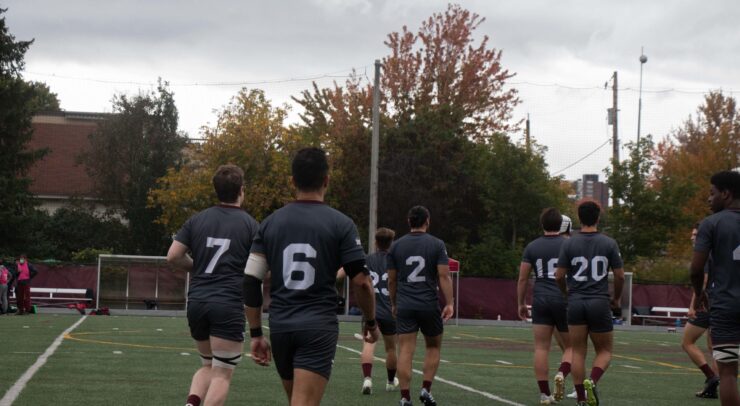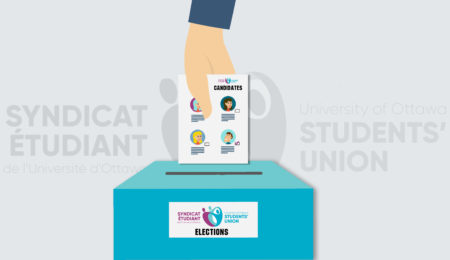It is primordial for athletes to take care of their mental health while competing
There is no question that mental illness is something that affects a long list of student-athletes. Unfortunately, mental health is not always handled properly, and there are some barriers for those needing help.
For men, some of these barriers stem from toxic masculinity and negativity surrounding men’s mental health in society, which can lead to difficulties for men trying to understand their mental health, or those struggling to navigate their emotions.
Between the amount of pressure placed on athletes, team and coach environments, and juggling school and other outside factors, managing mental health is something that is necessary, but is not talked about nearly enough.
In November, men’s mental health awareness was highlighted as a theme for the month. The month encourages conversations about men’s mental health and resources on the subject are shared throughout social media.
What has happened since then?
Heading into 2022, things were not looking great for Canadian university athletes. Just days into the new year, Ontario University Athletics (OUA) announced that games and practices would be put on pause until Jan. 24 due to ongoing concerns about the COVID-19 pandemic.
What does that have to do with mental health?
A lot.
The way COVID-19 has forced athletes out of routine, taken away passions, and prevented teams from training and competing is just one thing on the long list of factors that can lead to mental health issues like depression, suicidal thoughts, and eating disorders.
What else is there? Things which have affected mental health for as long as teams have existed, like treatment by coaches, parental expectations, team environments — the list goes on and on, and rather than bombard you with statistics or a list of facts, hear it from the athletes themselves.
The University of Ottawa has plenty of championship-level sports teams made up of the top athletes in the nation, including the nationally-ranked men’s basketball team, led by Guillaume Pépin.
The men’s rugby team has grown into a playoff competitive team thanks to athletes like James Shaw, hosting their first home playoff matchup in October. In the 2021 season, the men’s ultimate club had a great nationals run, where Simon Walker was a key player for the Gees.
These athletes have come from various teams and backgrounds in their journey to becoming Gee-Gees, and while they have seen success as university athletes, they’ve experienced different types of teams, coaches, environments and of course, different battles with mental health.
There are so many stereotypes about male locker room atmosphere, often portraying toxicity, poor team morale, or lack of cohesion throughout the entire squad. While this can seem exaggerated in media content, it isn’t always too far off.
“I have been on teams where I have felt welcome and involved and my wellbeing was elevated every time I interacted with teammates,” Shaw said. “Unfortunately, I have also been on teams where I’ve felt more isolated or not a part of the ‘in-group.’ ”
As a captain on the Gee-Gees team, Walker has put in efforts to maintain a positive atmosphere.
“I always try to push away any sort of toxic masculinity that’s come up over the years, but it’s there every once in a while,” Walker said. “Toxic masculinity is a mask that a lot of guys put on that kind of prevents them from talking about [mental health] a lot.”
“I think in general men feel like there is a barrier to talk about their mental health problems.”
Teams can offer comradery, friendship, and in some cases, even a sense of family. In contrast, teams can be a negative place for an individual and instead provide feelings of discomfort, anger, or even fear.
“Feeling isolated can be very difficult in a competitive environment. A practice turns into a competition to prove your worth, instead of an opportunity to develop your skills. The impacts of isolation are different for everyone. Personally, it obliterated my confidence and prompted thoughts of suicide,” Shaw explained.
“Thankfully, even if there isn’t a great sense of family within a team, there are usually a few teammates that have your back. I was fortunate enough to have some close friends to help me through that time in my life.”
Similarly, coaches have the capability of changing an athlete’s experience and directly impact their mental health.
“I’ve had coaches in the past that were really intense and strict, sometimes almost abusive,” Pépin said.
While there are plenty of coaches who should not be in their position or simply not a match for some players, there are many who have their athletes’ best interests at heart.
“Coaches can also be a wonderful resource for helping you find your way. Confiding in a coach can be a bit scarier, especially if they are part of the reason you’re struggling,” Shaw said. “However, good coaches tend to have great insights and advice about getting into a better headspace.”
Understanding their mental health and finding that better headspace is something that has allowed these athletes to optimize their performance.
“Mental health is the most important thing because your brain is the most powerful thing. I feel like what you watch, what you eat, what you see on social media, and everything you do with your surroundings will affect your mental health,” Pépin explained.
“Eating healthy and having positive surroundings will help so much.”
Mental health has the potential to both improve or damage an athlete’s performance or desire to play.
“I can name many times my mental health has ruined games for me,” Walker said.
“My mental health has definitely had a major impact on my performance,” Shaw said. “I have never been a top athlete in the gym or in fitness testing. My mental acuity was my advantage in sport.”
“As a result, it was critical for me to maintain a healthy mindset throughout my time as an athlete. To prepare myself for games I needed to ensure I was in a good mood or at least able to channel emotions like anger or fear into my play.”
When it comes to managing mental health while competing, there are different approaches. It is just a matter of figuring out what is the healthiest for the specific athlete.
“I know people who use their mental turmoil to help push them more in a game, but for me, learning to leave my issues on the sideline definitely helped me improve as a competitor,” Walker said.
Things like burnout can come into play, especially for those with busy schedules. While it is something very common, it can be difficult to overcome burnout and take a break as there are pressures to continue to perform and commit to a sport or team.
“Being a student-athlete requires a lot of discipline and time management,” Shaw explained. “Throughout my undergrad, I didn’t appreciate how critical it was to have a good rest and recovery routine.”
“Unfortunately, that resulted in my first experience with burnout after a tough first semester of [grad school].”
Burnout can be a huge mental block for an athlete.
“I experienced burnout in most of my years which affected both my schoolwork and playing — it caused me to skip both practice and class because I didn’t have the willpower to leave my room,” Walker explained.
As university athletes, these players are also students. In the heat of the season, it can be a challenge to succeed in the classroom and on the field.
“Our team was full of very smart students, but the atmosphere usually pushed us to put off school until after tournaments… It was never said, or told outright, just a general feeling that while you’re playing at tournaments, school doesn’t matter,” Walker said.
The concept of taking a break is incredibly overlooked in sports, especially at high levels. However, sometimes, stepping away is necessary.
“I took a two month break from the sports because I needed it… it made a huge difference,” Walker explained. “[When] going on my break, I never wanted to see a frisbee again, but after months I realized how much I missed the people and the sport.”
Shaw recently decided to take a step away from rugby.
“Part of my recent decision to step down from rugby this year was to make sure that I can build on my current mental health and improve my relationship with food,” Shaw said. “It was critical for me to move away from the organized sport so that I could have time and energy to do effective work on my mental health and eating habits.”
There are endless things to talk about when it comes to men’s mental health in sport, we’ve only touched the surface of three athletes’ experiences when in reality, everyone has their own challenges and stories worth hearing.
There are plenty of resources to confide in from friends, teammates, captains, and coaches. Shaw, however, recommends working with a mental performance consultant.
“Lastly, the most effective option for athletes struggling is connecting with a mental performance consultant (MPC). MPCs are wonderful resources for athletes and performers. They can help you with any mental health barriers that don’t reach clinical level and refer you to trusted professionals if they do,” he said.
If you or someone close to you are suffering from mental illness and are in need of help, please know that there are supports available. Here is a non-comprehensive list of local mental health resources…
- University of Ottawa Health Services (UOHS), 100 Marie-Curie Private
- Offers counselling, psychiatric services, individual, couple or family therapy, access to psycho-educational groups and referrals to specialists off-campus
- Student Academic Success Service (SASS), 100 Marie-Curie Private
- Offers individual counselling, peer-counselling, workshops, online therapy and group counselling using new stepped model; referrals
- Faculty mentoring centres (locations differ by faculty)
- Specialized mentoring services catered to the needs of students in each faculty
Off-campus…
- Mental health hotlines…
- Drugs and Alcohol Helpline: 1-866-531-2600
- Fem’aide: 1-877-336-2433
- Good2Talk: 1-866-925-5454
- Kids Help Phone: 1-800-668-6668 or text CONNECT to 686868
- Mental Health Crisis Line: 613-722-6914
- Distress Centre of Ottawa and Region: (613) 238-3311
- Ottawa Rape Crisis Centre: 613-562-2333
- Tel-Aide Outaouais: 613-741-6433
- Trans Life Line: 1-877-330-6366
- Walk-in counselling clinics (six Ottawa locations)…
- Somerset West Community Health Centre (55 Eccles Street)
- South-East Ottawa Community Health Centre (1355 Bank Street)
- Family Services Ottawa (312 Parkdale Avenue)
- Jewish Family Services of Ottawa (300-2255 Carling Avenue)
- Ottawa Community Immigrant Services Organization(959 Wellington St. W)
- CFS/SFC Ottawa (310 Olmstead Road)
- Community health and resource centres (13 in Ottawa)
- Carlington Community Health Centre (900 Merivale Road)
- Eastern Ottawa Resource Centre (215-1980 Ogilvie Road)
- Nepean, Rideau and Osgoode Community Resource Centre (1547 Merivale Road, Unit 240)
- Rideau-Rockcliffe Community Health Centre (225 Donald Street)
- Sandy Hill Community Health Centre (221 Nelson Street)
- South East Ottawa Community Health Centre (1355 Bank Street)
- Western Ottawa Community Resource Centre (2 MacNeil Court)
- Centretown Community Health Centre (420 Cooper Street)
- Lowertown Community Resource Centre (40 Cobourg Street)
- Orleans-Cumberland Community Health Centre (240 Centrum Boulevard)
- Pinecrest-Queensway Community Health Centre(1365 Richmond Road)
- Somerset West Community Health Centre (55 Eccles Street)
- Vanier Community Service Centre (270 Marier Avenue)






